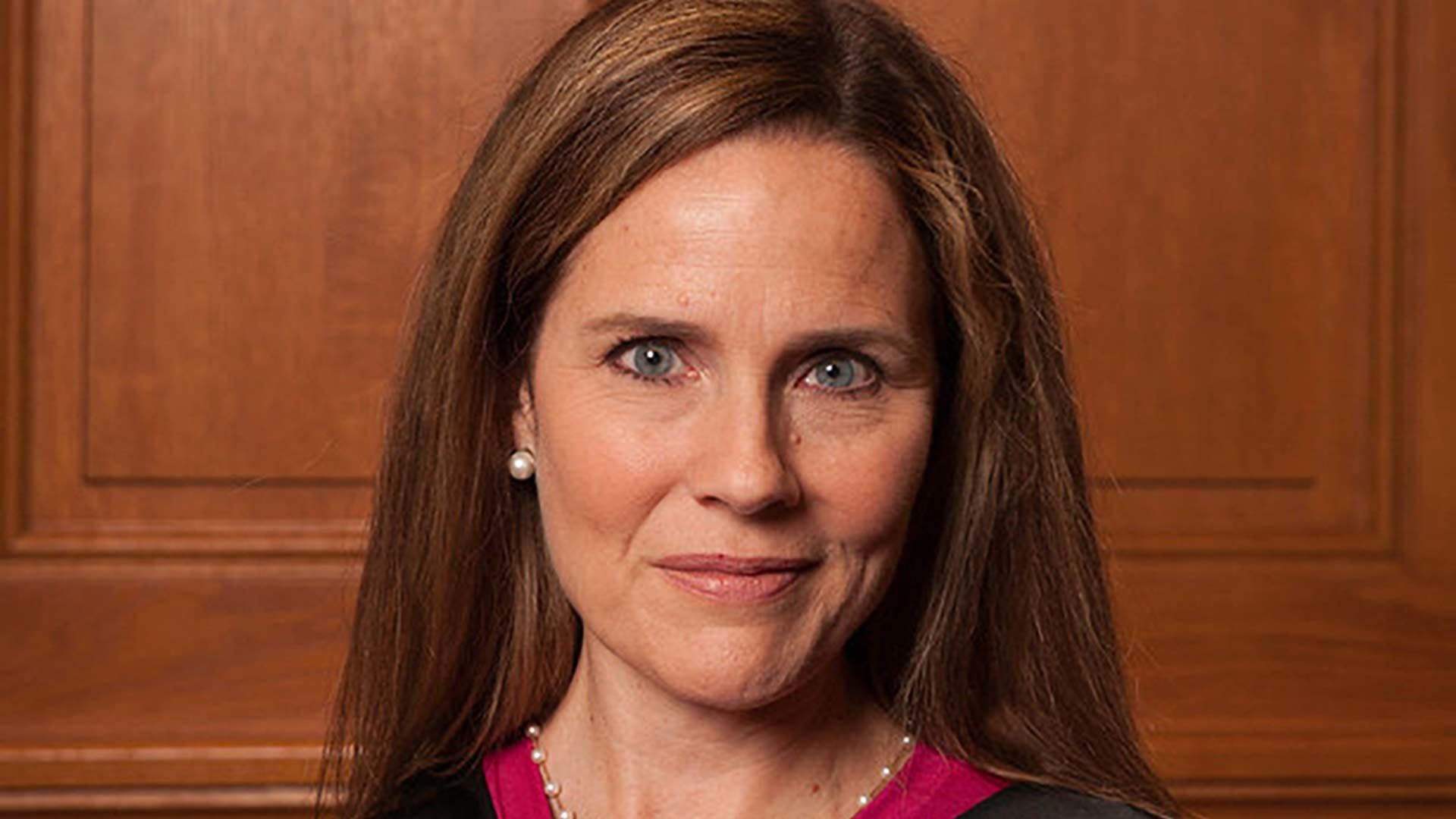On Friday, President Donald Trump announced Amy Coney Barrett will be his nominee to replace the late Justice Ruth Bader Ginsburg. Here are nine things you should know about Judge Barrett.
1. Amy Coney Barrett, age 48, was born in New Orleans, Louisiana. She earned her BA in English literature, magna cum laude, from Rhodes College in Memphis, Tennessee, where she was elected to Phi Beta Kappa and, among other honors, was chosen by the faculty as the most outstanding graduate in the college’s English department. She earned her JD, summa cum laude, from Notre Dame, where she was a Kiley Fellow, earned the Hoynes Prize—the law school’s highest honor—as the number one student in her class, and served as executive editor of the Notre Dame Law Review.
2. After graduating law school, Judge Barrett clerked for an appeals court judge (1997–1998) and for Justice Antonin Scalia on the U.S. Supreme Court (1998–1999). She also served in private practice at Miller, Cassidy, Larroca, & Lewin in Washington, D.C., from 1999 to 2002, where she litigated constitutional, criminal, and commercial cases in both trial and also appellate courts. She was appointed as a judge to the U.S. Court of Appeals for the Seventh Circuit by Donald Trump in 2017.
3. Judge Barrett served as a visiting associate professor and John M. Olin fellow in law at George Washington University Law School for a year before returning to Notre Dame Law School in 2002. At Notre Dame she taught federal courts, constitutional law, and statutory interpretation. Barrett has also served as a visiting associate professor of law at the University of Virginia, and is a member of the American Law Institute (ALI).
4. Judge Barrett’s scholarship has been published in several leading journals, including the Columbia, Virginia, Texas, and University of Chicago Law Reviews. From 2010 to 2016, she served by appointment of the chief justice on the Advisory Committee for the Federal Rules of Appellate Procedure. She has been selected as “distinguished professor of the year” by three Notre Dame Law School graduating classes.
5. In her judicial philosophy, Judge Barrett is considered a proponent of originalism, a manner of interpreting the Constitution that begins with the text and attempts to give that text the meaning it had when it was adopted, and textualism, a method of statutory interpretation that relies on the plain text of a statute to determine its meaning.
6. Out of the eight justices in American history who have previously served as law clerks for the Supreme Court, five are currently on the bench: John Roberts, Stephen Breyer, Elena Kagan, Neil Gorsuch, and Brett Kavanaugh. If confirmed, Barrett would be the sixth.
7. Judge Barrett is married to Jesse Barrett, a fellow Notre Dame Law School graduate, who served for 13 years as an assistant U.S. attorney for the Northern District of Indiana. The couple has seven children, who currently range in age from 8 to 18. Two of their children were adopted from Haiti, and the youngest has Down syndrome.
8. Barrett is Roman Catholic, and was reportedly a member of People of Praise, a “charismatic, ecumenical, and covenant community” that includes “Roman Catholics, Lutherans, Methodists, Episcopalians, Presbyterians, Baptists, Pentecostals and other denominational and nondenominational Christians.” In a 2016 commencement address at Notre Dame Law School, Barrett said, “Your legal career is but a means to an end. . . . That end is building the kingdom of God.” She also asked, “No matter how exciting any career is, what is it really worth if you don’t make it part of a bigger life project to know, love, and serve the God who made you?”
9. In 2017, during Barrett’s confirmation hearing for her appointment as a federal judge, California Sen. Diana Feinstein implied that Barrett couldn’t be trusted to apply the Constitution and laws objectively because she is a believing Catholic. “Why is it that so many of us on this side have this very uncomfortable feeling that dogma and law are two different things, and I think whatever a religion is, it has its own dogma. The law is totally different,” Feinstein said. “And I think in your case, professor, when you read your speeches, the conclusion one draws is that the dogma lives loudly within you. And that’s of concern.” Numerous legal scholars condemned Feinstein for indirectly applying a religious test as a requirement for the federal judiciary.
See also:
